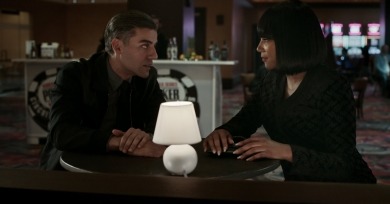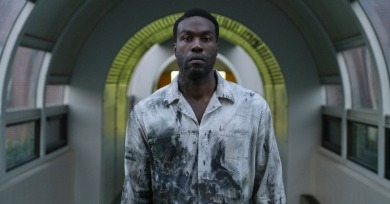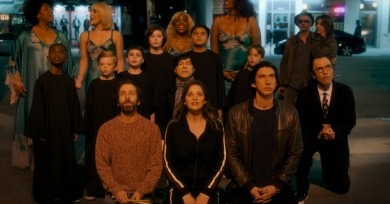Reviews
Alice Rohrwacher, Pietro Marcello, and Francesco Munzi have traveled their homeland in search of a national identity. What they discovered instead are the typical anxieties of adolescence.
The relationship has clearly been weighing on Andrea, who continually refers to himself as homosexual, despite the physicality that Duras requires of him. Arlaud portrays him as constantly shrinking, folding in upon himself, his cigarette consumption his only action that feels furtive and alive.
As La Linda, Tillich, and The Kid move through city after city, facing down unlovely rooms and unsatisfying conclusions, Tillich is forced to realize that it is not always possible to salve the old wounds, to regain lost innocence, or to temper the impulsive violence of young American men seemingly hellbent on destruction.
Isabella has films within films, plays within plays, and people within people. As in its central mise en abyme, the director creates an abyss of rhyme and recurrence. His mode of adaptation works reflexively, where these layers upon layers lead to a sense of collapse.
Although one cannot say Candyman shies away from body horror, DaCosta judiciously wields this imagery to meaningfully express the psychological and physical legacies that Black communities inherit, bonded by these tales of terror, which are, in fact, history.
In this first, five-minute shot of his new film, Days, Tsai Ming-liang reminds us again of why this once youthful but eternally sorrowful man, now in his early fifties, is among the great muses of what we once called cinema.
If Ema is ostensibly fighting for another chance at motherhood, she is also struggling to assert her own individuality over and against a system that has already decided the place she ought to occupy (on stage and at home).
Many recent musicals have tried to ground themselves in realism or history itself, rarely breaking away to indulge in spectacle and never commenting on their approach to storytelling. Carax and Sparks, by contrast, aim to expose the artifice inherent in their production.
The Green Knight invites authorial skepticism, searching through hundreds of years of English folklore and literature to arrive at something altogether more slippery yet truthful about how narrative bends to serve its master.
His films can be quite melancholy, as this one is, but they often, especially his more recent ones, vibrate with giddiness, the ever-alert camera finding the right, often idiosyncratic angle; Shyamalan still believes, with the resoluteness of a child, that movies are magic, even if they are for adults.
There are fantastical elements in the film, mainly the presence of ghosts who play music when Dora and, later, Mario are near death, but they never intersect with the central relationship of Mario and Marta.
People reliving or articulating past traumas on screen is fairly standard in social issue documentaries. What is most striking about Silent Voice is that it presents its main subject, Khavaj, and his personal story without inflicting more pain or describing it in detail, even if the shocks to his mind and body are still painfully tangible.
The diasporic condition naturally invites questions of duality that are far from merely symbolic, except here characters are bound to one nation, mobility interrupted, mired in debt and stymied by pervasive institutional corruption.
The Works and Days (of Tayoko Shiojiri in the Shiotani Basin) runs a total of 480 minutes, or the span of an average workday. Shot for 27 weeks, spread out over a period of 14 months, it follows Tayoko Shiojiri over the course of five seasons, in her village in Kyoto Prefecture.













